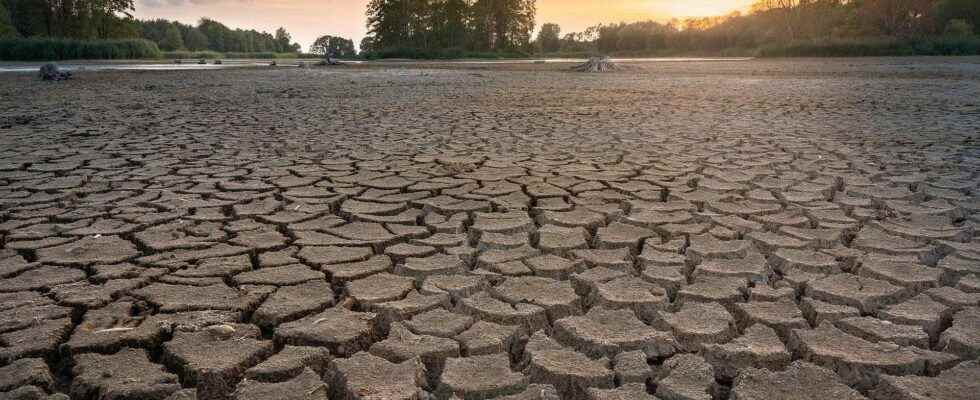The Met Office study (the service weather report English National), published in Journal of Climate, is the first to highlight the influence of human activity on rainfall extremes in Europe. Scientists compared different climate scenarios, with and without human influence. the Met Office went back to 1850 to compare the evolution of the climate in the Mediterranean and the rest of Europe.
Increasingly extreme rains in the north
If the IPCC reports had already pointed out the effect of global warming on precipitation at the global level, the case of Europe had not yet been analyzed with precision. With each degree of warming gained, the process of evaporation of water is stronger and increases precipitation by 7%. This is a global observation, but this increase in precipitation is not uniform throughout the world: areas that are already humid, such as northern Europe, are becoming even wetter and subject to episodes of extreme precipitation, and therefore at the risk offloods. Like the historic floods which caused the death of nearly 300 people in Germany and Belgium in July 2021: it is always difficult to attribute a single event, however violent, to global warming, but the rise in temperatures multiplies the probability that this type of extreme phenomenon to occur. However, dry and arid areas, such as the Mediterranean basin, are facing an increasingly dry climate, leading to a drought persistent.
The cooling role of aerosols
With their climate models, the researchers simulated a situation in which human influence does not exist. Then another situation in which the evolution of the European climate is solely influenced by aerosolsand a final situation in which the climate of Europe is influenced by aerosols and greenhouse gas. The results were very clear: greenhouse gases are the main factor influencing climate change in Europe. But the simulations also showed that the aerosols attenuated this influence, with a cooling effect. Remember that aerosols are polluting particles harmful to the environment and our health: these particles can be of natural origin (forest fires, volcanic ash, etc.) and artificial (combustion from coalfrom fuel oil, etc). Some aerosols have a cooling effect while others contribute to global warming.
Extremes that are accentuated especially in winter
The climate models used study the role of different causes, natural and human. The results show that the emissions due to human activities accentuate trends, with seasons drier in the Mediterranean and wetter on the rest of the European continent. These contrasts accentuate thewinter and are less marked in summer, when the drought is more generalized. The only exception in summer is a marked increase in rainfall in Scandinavia. Winter precipitation is directly influenced by anthropogenic warming (i.e. resulting from human activity): the frequency of extreme precipitation is increasing everywhere except in the Mediterranean basin, an area in which the rains are increasingly rare. The increase in precipitation in northern Europe would in fact be linked to a Jet-Stream which would circulate further south, in connection with the melting ice-creams.
The authors of the study specify that the trend towards a drier climate in the Mediterranean and wetter elsewhere will continue to worsen, but not in a progressive and linear way: climate simulations have shown that the evolution takes place in a brutal, not with a continuous rise, but with a cascade of violent events and sudden. With this observation and these projections, the authors of the study specify that our activities must adapt, in particular agriculture in the Mediterranean basin, and that the other regions of Europe must prepare for an increasing risk of flooding. more present.
Special offer: for Father’s Day, offer the best of Science!
Your father is a great science enthusiast and unusual discoveries? And if you offer him a superb scientific exploration in paper format? Benefit from -20% on the Mag Futura (special offer: €15 instead of 19 €): 220 pages to explore 4 scientific issues that will shape our future!
Mag Futura is:
- 4 major scientific questions for 2022, from the Earth to the Moon
- 220 pages, 60 experts: no fake news, just science
- Home delivery with electronic gift card
- An independent scientific media
Interested in what you just read?
